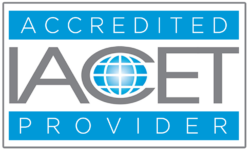Did you know IEE is a national partner on a federal Investing in Innovation grant project?
In 2013 we partnered with four national organizations to submit a proposal to the U.S. Department of Education’s prestigious Investing in Innovation (i3) grant competition. The i3 program awards federal funds to projects that provide innovative solutions to common education challenges. Led by The National Forum to Accelerate Middle-Grades Reform, our project partners also include the California League of Middle Schools, the Kentucky Middle School Association, and the Center for Prevention Research and Development at the University of Illinois as the project evaluator. I’m excited to share with you that out of 618 applications submitted for the 2013 i3 competition, ours was one of only 25 selected to receive a grant award!
Middle-Grades Leadership Development
Our proposal, Middle-Grades Leadership Development (MLD), is a four-year project focused on leadership development in high-needs middle schools. MLD’s premise is based on two important pieces of research. The first is that middle-school grades are pivotal to a child’s future success, and they represent the last, best chance to keep students on the path to high school graduation. For example, in “The Forgotten Middle,” ACT researchers conclude that the academic achievement of eighth-graders is a better predictor of college and career readiness than students’ academic performance in high school.
The second piece of research foundational to MLD shows that while teacher efficacy is the most important factor in student learning, a school principal’s leadership is the one mechanism that accounts for a school’s overall quality of teacher instruction and student achievement. Principal training, however, is generalist for all grades K-12. It lacks preparation specific to the unique needs and challenges of middle-grades learners. How does a principal lead effectively without knowledge about, vision for, and preparation in creating the type of middle-grades school culture and learning environment that keeps students engaged, motivated, and on-track for graduation?
The National Forum to Accelerate Middle-Grades Reform (the Forum) is a national network of member organizations committed to the common goal of accelerating the academic performance and healthy development of pre-adolescents and middle-grades learners. The Forum’s signature program, Schools to Watch (STW), is a national, state-operated model-school identification and school-improvement initiative focused on recognizing high-achieving schools serving grades five through eight. Middle schools around the country look to the Forum and STW for answers, information, ideas, and cutting-edge strategies.
STW has created a “Leadership Matters” program that provides middle-grades leaders with the knowledge, background, and skills to increase student achievement. First tested by the California League of Middle Schools, Leadership Matters is producing promising results. All the schools that participated in the 2007-2011 program exceeded their Academic Performance Index growth targets.
The MLD project is a four-year program that will work with twelve high-needs rural and urban middle schools in Michigan and Kentucky using the STW Leadership Matters model. The goal is to increase equitable access to quality leaders and hence to increase student achievement and student graduation rates. Our role at IEE is to facilitate Leadership Matters at six project schools in Michigan and train school leaders to improve teacher effectiveness, implement school-wide student support systems, and develop positive learning environments. The Kentucky Middle School Association will do the same with six project schools in Kentucky.
All twelve project schools will be matched with a mentor school from the STW network of high-performing middle-grades schools. This networking component accelerates the change process and fosters a safe learning environment that encourages the innovation and feedback that helps build a long-term capacity for improvement. The mentor school will host visits, allow observations, share strong practices and programs, and serve as a laboratory for learning, thereby providing expertise to project schools. MLD school leadership teams will have continuous consultation with their leadership coach, principal mentor, network mentor school, and STW team leader.
The Leadership Matters model will lay a foundation for leadership excellence at the project schools that will continue well beyond the lifetime of the MLD project. The distributed leadership model will cultivate leadership among the schools’ various stakeholders. Collaborative decision-making, shared buy-in, and unity of purpose are important elements for sustainability and capacity development. Joint leadership involvement will buffer the schools against principal and staff turnover. Also, further research indicates that improvements made at the middle schools will help their students not just in high school, but in their postsecondary pursuits as well.
Our Progress So Far
Since the i3 grant was awarded at the close of 2013, the entire MLD team has been hard at work launching the national project. We spent 2014 planning every aspect of the four-year project, recruiting participant and mentor schools, and securing the private matching funds required by the i3 program.
MLD’s work with participant schools officially kicked off in June at the National STW Conference in Washington, D.C. There, project school leadership teams had the opportunity to network with and learn from leaders of the country’s high-performing middle-grades schools and the STW Network.
Project work ramped up considerably with the start of the 2014-2015 school year. Since then, MLD project teams have been hard at work with coaching and mentoring activities, and helping project school leadership teams to improve outcomes for their students. Much work is yet to be done as the MLD project continues through 2017. In the meantime, we’ll keep you posted on the project’s exciting developments.
We are honored to participate in this prestigious project that has the capacity to positively impact middle-grades education on a national scale. As Deborah Kasak, the Forum’s Executive Director, stated:
“This i3 proposal affords us the opportunity to improve outcomes for young adolescents by equipping middle-grades leaders with the skills, knowledge, supports, and resources they need to change and inspire their school communities.”

